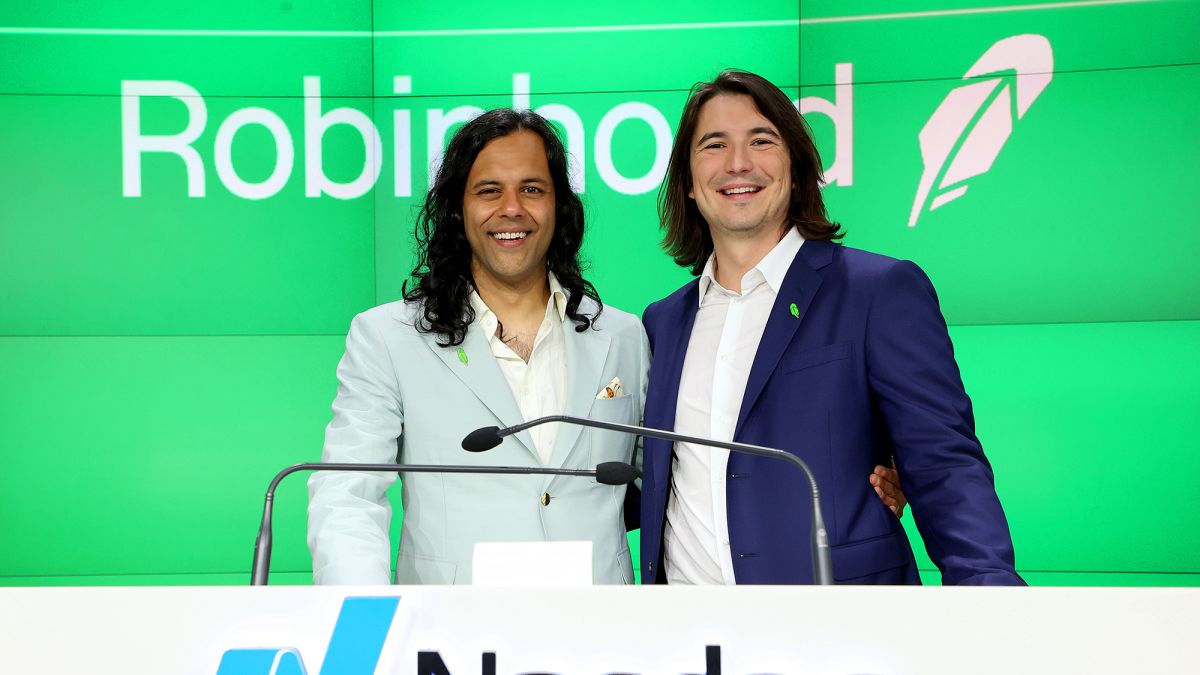Robinhood has been public for just one week, but one thing is crystal clear it is already a meme stock.
Traditionally, investors buy a stock because they believe in its fundamentals: revenues, good management, and earnings.
The hope is to capitalize on its future earnings. However, meme stocks are propped up by viral activity fueling by giant social media platforms.
Fundamentals take a backseat to herding, FOMO (fear of missing out), and speculation.
Robinhood’s (HOOD) share price surged by 100% over two days, and its daily trading volume is nearly 80 million. By the time the market closed earlier today, the stock had plummeted by 27%.
- 52- Week Range: $33.25 – $85
- Daily Volume: 79,675,319
The 52-week range is the lowest and highest price at which a stock has been traded during the previous 52 weeks.
The company’s initial public offering was priced at 38 dollars.
It’s official; HOOD is in the meme basket-an an unusual basket of stocks, including AMC and GameStop, with its unique, idiosyncratic risk.
Did Robinhood Position Itself to Be a Meme Stock?
In its S-1 Form, Robinhood stated that more than 50% of Robinhood’s customers opened brokerage accounts for the first time.
The trading platform knows that a majority of its users are unsophisticated investors. Still, yet the company set aside nearly 35% of its Class A common stock for sale to its customers through its IPO Access feature on its platform.
Robinhood’s action seems commendable on the surface. Mom-and-pop investors having access to IPO but scratching the surface reveals that it’s propaganda to promote the IPO and capitalize on herding and FOMO.
The recent news that some institutional investors and venture capital firms want to cash out further proves that point.
VC Firms Want to Cash In
Robinhood filed earlier today to sell nearly 98 million of Class A common stock of Robinhood Markets, Inc on behalf of its giant venture capital and other big Wall Street firms.
It is a modern-day pump-and-dump scheme, but it is a bit more subtle and dressed as the democratization of finance.
The Bottom Line
Robinhood Markets Inc promoted its IPO to millions of unsophisticated retail investors in its platform.
The firm knew that herding and FOMO would create a stock trading frenzy, which its backers, the giant venture capital, and Wall Street firms would love.
Now, mom and pop inventors have 98 million of Class A common stock of Robinhood Markets, Inc they can buy.







